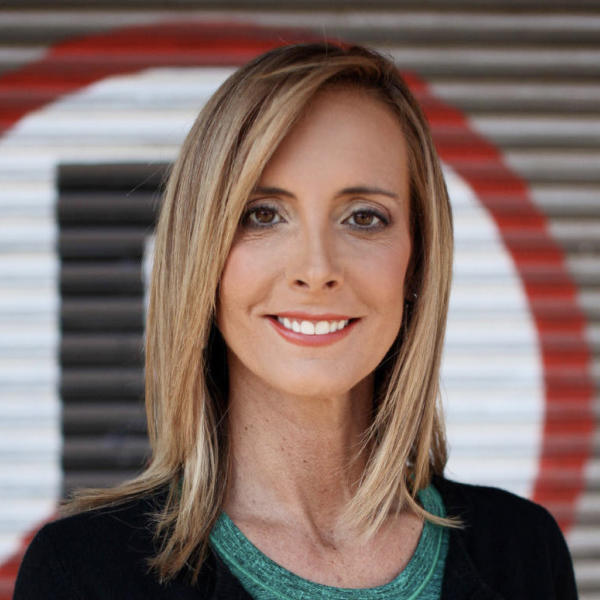
Nigeria clashes trigger global movement against police brutality
More than two weeks ago, tens of thousands of Nigerians began demanding the disbanding of the Special Anti-Robbery Squad, a controversial police unit known as SARS.
Watch CBS News

Debora Patta is a CBS News foreign correspondent based in Johannesburg, South Africa. She joined CBS News in 2013 and has reported on major international stories across the continent including the Ebola outbreak, the kidnapping of schoolgirls by Boko Haram and the famine in South Sudan. She reports for all CBS News broadcasts and platforms, including the "CBS Evening News," "CBS Mornings," and the CBS News 24/7.
Since joining CBS News, Patta has also reported across the Middle East and Europe including the bombing of a Syrian children's hospital, the fall of Aleppo, and terror attacks in Brussels, France and Spain.
Patta, who wrote a book on Nelson Mandela in 2000, was CBS News' lead correspondent after his death, providing on-the-ground coverage of his funeral and celebration of his life and impact on South Africa. Patta also reported from Liberia during the Ebola crisis, where half of the Ebola cases in the world were located.
Patta has also reported extensively from conflict zones in Niger, Somalia and Cameroon. She reported from Niger after Islamic militants ambushed U.S. and Nigerian soldiers, leaving four Americans dead. Patta's reporting on child cobalt miners in the Democratic Republic of the Congo prompted an outpouring of support from CBS News viewers who donated money to send children to school.
Patta has also reported on child slaves in the fishing industry in Ghana. In addition, she has covered the effects of climate change on the African continent looking at plastic pollution and the second-hand clothing industry, reporting on how our discarded fashion items end up on dump sites half-way round the world.
During the COVID-19 pandemic, Patta reported on how the virus spread across the African continent and investigated vaccine inequality. She was the first international correspondent to visit the lab where the new variant Omicron was identified shortly after scientists announced its discovery to the world.
Patta began her career in South Africa, reporting for the BBC Radio. In 1990 she joined a Johannesburg talk radio station and became well-known for her coverage of Mandela during his election campaign to become South Africa's first black president. Mandela used to call her "his favorite journalist." She moved to independent free-to-air television station e.tv in 1998, became its editor-in-chief and later launched the country's first 24-hour TV channel. Patta was also the host and executive producer of "Third Degree," an investigative current affairs program, for 13 years and was known for conducting tough and thorough interviews.
Patta is an award-winning journalist, having been named Vodacom Media Woman of the Year, South Africa's Most Influential Woman in Media and Italy's Woman of the World, and she was one of MTN's Outstanding Women in Media. She is also the recipient of an Edward R. Murrow Award; an NABJ Salute to Excellence award; and a Scripps Howard award for broadcast excellence.
She is also an author and exercise enthusiast, having summited Mt. Kilimanjaro and ran a New York City marathon.

More than two weeks ago, tens of thousands of Nigerians began demanding the disbanding of the Special Anti-Robbery Squad, a controversial police unit known as SARS.

One senior public health official credits basic measures like masks and hand washing with giving South Africa a virtually flu-free year.

More than 330 elephants in the Sergona area in Southern Africa died this summer, and climate change likely played a role, but there are still unanswered questions.

An early lockdown in South Africa saw a delayed spread of the coronavirus, but now it's arrived in full force, with experts saying it's only expected to peak in September.

Something has killed more than 350 elephants in the country's Okavango Delta, and officials hope to have some answers in the coming week.

The country's tried and tested human weapons in the war on infectious disease have given it a leg-up in the battle against COVID-19.

Oxford University team's drug is a leading contender, but there isn't enough virus still circulating in England for a trial there to work alone.

"The debate over statues is always a debate about more than statues," says Professor Achille Mbembe. It's about "where we want to go."

Less than 30 years ago racism was not only legal in South Africa, but the official system of government. It's come a long way, but the journey's not over yet.

As lockdowns force millions of young people to adapt to online learning, access to the internet has become one of the biggest challenges in the world's poorer communities.

There's "a real danger that more people could potentially die from the economic impact of COVID-19 than from the virus itself," says the U.N. food agency's chief.

Researchers in at least four countries are testing whether the century-old vaccine for tuberculosis can lessen the severity of some COVID-19 cases.

CBS News' Debora Patta gets a harrowing look as doctors battle the clock and a killer disease to save lives — a fight they simply can't always win.

For years people have flocked to False Bay, off Cape Town, to watch great whites, and scientists aren't sure why they've all gone, but they have theories

The scientists are hoping the expedition will raise our understanding of climate change to a new level